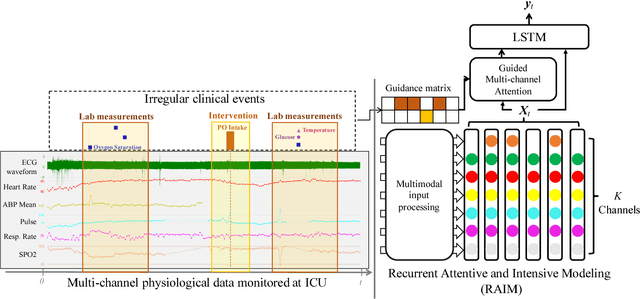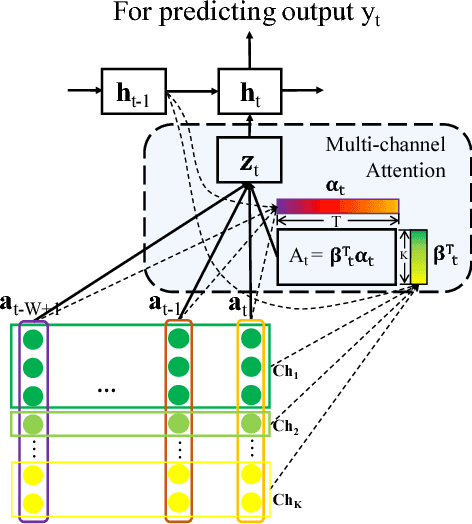RAIM: Recurrent Attentive and Intensive Model of Multimodal Patient Monitoring Data
Paper and Code
Jul 23, 2018



With the improvement of medical data capturing, vast amount of continuous patient monitoring data, e.g., electrocardiogram (ECG), real-time vital signs and medications, become available for clinical decision support at intensive care units (ICUs). However, it becomes increasingly challenging to model such data, due to high density of the monitoring data, heterogeneous data types and the requirement for interpretable models. Integration of these high-density monitoring data with the discrete clinical events (including diagnosis, medications, labs) is challenging but potentially rewarding since richness and granularity in such multimodal data increase the possibilities for accurate detection of complex problems and predicting outcomes (e.g., length of stay and mortality). We propose Recurrent Attentive and Intensive Model (RAIM) for jointly analyzing continuous monitoring data and discrete clinical events. RAIM introduces an efficient attention mechanism for continuous monitoring data (e.g., ECG), which is guided by discrete clinical events (e.g, medication usage). We apply RAIM in predicting physiological decompensation and length of stay in those critically ill patients at ICU. With evaluations on MIMIC- III Waveform Database Matched Subset, we obtain an AUC-ROC score of 90.18% for predicting decompensation and an accuracy of 86.82% for forecasting length of stay with our final model, which outperforms our six baseline models.
 Add to Chrome
Add to Chrome Add to Firefox
Add to Firefox Add to Edge
Add to Edge